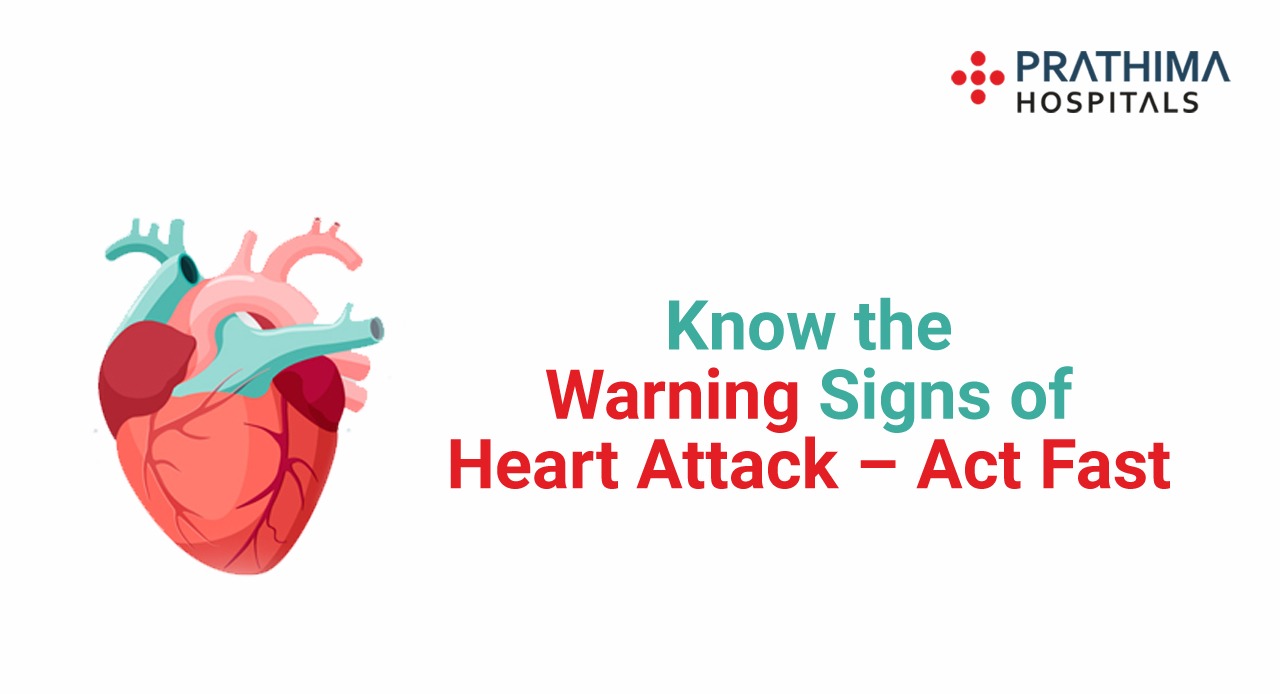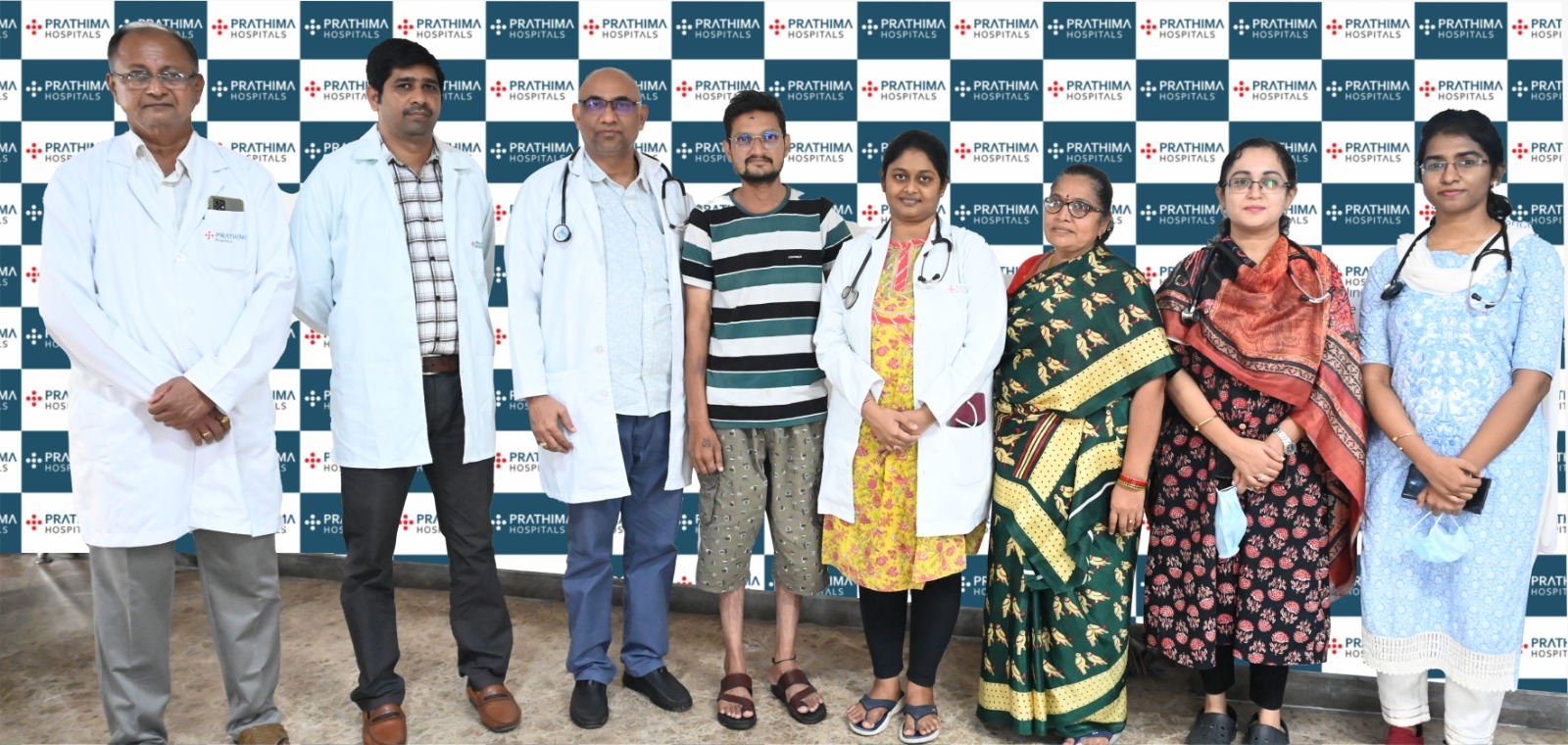Know the Warning Signs of Heart Attack – Act Fast

Everyone is aware that severe chest pain is frequently an indication of a heart attack. However, the signs and symptoms of some forms of cardiovascular disease are far less obvious.
It’s important to keep an eye out for more than just the “classic” problems.
Most common types of heart disease
Cardiovascular disease is an umbrella term that encompasses several types of heart issues:
Coronary artery disease: Coronary artery disease is the most common heart disease. It results when there’s a buildup of LDL (bad cholesterol) in your arteries. If unmanaged, this can lead to cardiac arrest and death.
Congestive heart failure: This happens when your heart muscle is too weak and either pumps too little or at too high a pressure. About 5 million people struggle with congestive heart failure in the U.S., and more than half die within five years of being diagnosed.
Valvular heart disease: When one of the four heart valves doesn’t work properly, either because of an illness, a birth defect, or damage to the heart over time, you will experience valvular heart disease. It is most common in older people, and less common than other heart diseases. Some people may go their entire lives without knowing they have a valve problem. Best Hospital in Telangana.
Atherosclerosis: This is when plaque builds up on the walls of your arteries. Atherosclerosis affects about 3 million people annually. It often has no symptoms and may never cause an issue, but can lead to a heart attack if untreated.
Arrhythmia: This is when your heart beats too fast, too slow, irregularly, or skips beats. It’s one of the most common heart conditions and often isn’t a cause for concern. However, seniors with other risk factors may want to take a blood thinner to ward off strokes. If it’s untreated, it can result in cardiac arrest.
High or low blood pressure: Though technically not a disease in itself, high blood pressure is one of the most common conditions in the world. It can be controlled with medications and should be—unchecked blood pressure problems can cause heart attacks, stroke, and coronary artery disease. Said by Senior Interventional Cardiologist Dr. Mohammed Wasif Azam

What are the warning signs of heart disease?
Different symptoms can indicate different types of heart disease. Watch for these signs that might seem innocuous, but could signal that your heart health is at risk.
1. Extreme fatigue
Could indicate: Coronary artery disease; congestive heart failure; valvular heart disease
There are many conditions that can cause fatigue. Yet, persistent, unexplained tiredness could be a sign that your heart is not pumping well, or is encountering some other problem—like a blockage or a valve issue.
2. Shortness of breath
Could indicate: Atherosclerosis; coronary artery disease; congestive heart failure; valvular heart disease
You get winded easily if you’re a little out of shape but don’t write it off too quickly. If you find yourself gasping for air after a small amount of exertion, like walking out to the car or up the front steps, it could be heart-related.
3. Change in exercise tolerance
Could indicate: Coronary artery disease; congestive heart failure; valvular heart disease
Irregular heart conditions could cause due to irregular exercise and changes in lifestyle changes.
4. Digestive concerns
Could indicate: Coronary artery disease
Lightheadedness, nausea, vomiting, or stomach pain can be common signs of a heart attack—especially for women, who often have different symptoms than men. It can start with a vague sense of not feeling well in the digestive area or heartburn, but these, along with breaking into a cold sweat, can indicate coronary artery disease.
5. Sleep apnea, snoring, or waking up during the night
Could Indicate: Arrhythmia; coronary artery disease; congestive heart failure
Heart disease could be behind your poor night’s sleep. Your blood flow and heart rate change when you go to sleep when everything is functioning normally. If there’s something wrong, it could be waking you up at 1 a.m. Heart failure can cause sleep apnea or make fluid build up in the lungs, and arrhythmia can make you feel like your heart is racing—both of which can interrupt your dreams.
6. Swelling
Could indicate: Congestive heart failure; valvular heart disease
Especially in the legs, ankles, or feet, swelling can be a sign of heart failure. If you have puffed up so much that your finger leaves an indent when you touch your body, it might be time to check with a medical professional.
7. Chest discomfort or angina
Could indicate: Atherosclerosis; coronary artery disease; valvular heart disease
Feelings of squeezing, tightness, pressure, or heaviness can be signals that something is wrong with your heart. People commonly describe cardiac distress as feeling like an elephant is sitting on their chest.
8. Leg cramps
Could indicate: Atherosclerosis
Leg pain, or difficulty walking, can be a sign that your circulation is impaired. The main organ behind blood flow? Your heart.
9. Heart rhythm and rate changes
Could indicate: High or low blood pressure, congestive heart failure; valvular heart disease; arrhythmia
When your heartbeat feels unusual—too fast or uneven—that is called palpitations. It’s a feeling similar to when you’ve had too much caffeine or feel panicked. But if you’re just sitting and reading a book, and your heart starts to race, it could mean you’re at risk for heart disease.
10. Shoulder, arm, neck, back, abdomen, or jaw pain
Could indicate: Atherosclerosis, coronary artery disease
When your heart is struggling, it can make other parts of your body call out in pain. Arm pain is a classic heart attack symptom, but it can also occur in the shoulders, back, stomach, or jaw.
11. Dizziness or lightheadedness
Could indicate: Arrhythmia; high or low blood pressure; congestive heart failure; valvular heart disease
Feeling faint usually means there’s not enough blood flow to the brain. While there are lots of causes, abnormal heart function could be one of them—especially when you feel dizzy upon standing up. Best Hospital in Hyderabad.
12. Persistent cough
Could indicate: Coronary artery disease; congestive heart failure
Heart failure can make fluid build up in your lungs, which can trigger coughing or wheezing.
13. Weakness in extremities
Could indicate: Atherosclerosis
Weakness in the legs goes hand-in-hand with change in exercise tolerance and shortness of breath. It could be a type of fatigue associated with heart trouble.
If you experience any of the Warning Signs of Heart Attack symptoms of heart disease—either acutely or worsening over time—first stop what you’re doing and wait for it to resolve. Then consult best cardiologist in kukatpally and make an appointment to get it checked out. If it doesn’t resolve and you begin to experience other urgent symptoms, like more intense pain or difficulty walking, go to the emergency room.



